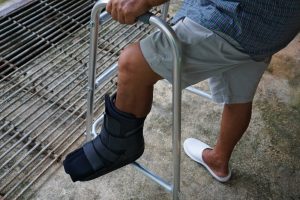 By: Susan St. John
By: Susan St. John
In yet another take-down of an illicit scheme to defraud the Medicare Program and ChampVA, as well as other insurers, Patsy Truglia has been sentenced to 15 years in federal prison. He has also had assets forfeited since these assets were acquired with money from his ill-gotten fraud scheme. In total, Mr. Truglia and his co-conspirators collected approximately $18.5 million from Medicare, ChampVA, and insurance using a scheme of telemarketing, telemedicine, and multiple DME providers or “store fronts.”
The scheme used telemarketers to collect beneficiaries personal and medical information to create orders for DME products such as knee, back, and wrist braces. These orders were then provided to telemedicine practitioners for signature – often without a valid telehealth communication. In essence, there was no attempt at having a practitioner exercise independent judgment as to the medical necessity of these DME products. Instead, these practitioners were paid for their signatures on the pre-filled order forms as part of the “scheme of greed.” From January 2018 to 2019, this scheme of greed resulted in approximately $12 million in payment to Truglia and his co-conspirators.
Even more shocking, although Truglia and his group were swept up in “Operation Brace Yourself” in April 2019, they started a new scheme of greed that ran from April 2019 until July 2020. This new scheme of greed included Truglia, some of the original co-conspirators, and some new co-conspirators. The scheme of using telemarketers and telemedicine providers continued under different DME providers. This time, the scheme resulted in approximately $6.3 million being paid to Truglia and company. Truglia continued to live high on the hog while robbing the Medicare Program, ChampVA, and insurers. If greed could be used to power electricity, Truglia and his group of fraudsters could power the state of Texas.
Although this Firm has highlighted problems with telemarketing, telehealth, and DME in previous articles, its worth addressing these problems again.
DME companies that hire telemarketers cannot pay these telemarketers to pay telehealth providers. That type of arrangement is equivalent to buying a referral, which is unlawful, violates antikickback statutes, and will result in false claims being filed with Medicare, Medicaid, Tricare, ChampVA, or others.
Telehealth providers cannot simply take a pre-populated order form and sign it. In fact, the telehealth provider should be suspicious of any pre-populated order form, DME or other types of order forms (e.g., genetic testing). Using a pre-populated order form diminishes the independence and integrity of the practitioner. There needs to be contact between the patient and the practitioner before an order is populated and signed. Likely, this contact needs to be conducted using 2-way audio and video communications so the practitioner can assess the patient (is there swelling of an affected area, how well does the patient ambulate, how is range of motion). It is not enough that a patient’s complaints are included on an intake or information form, the practitioner needs to confirm the validity of the complaint(s).
Further, for certain health complaints, the telehealth practitioner needs to obtain a patient’s records from his/her primary care provider or treating practitioner before prescribing or ordering treatment, including DME. Additionally, the DME company also needs copies of patients’ records that will support the medical necessity of the DME product ordered. Records should include the telehealth practitioner’s records, as well as other records the telehealth practitioner may have obtained prior to ordering the DME product(s) that support a persistent medical problem for the patient and other treatments used and recommended.
Moreover, DME companies should be wary of telemarketing companies that demand large fees that are above fair market value for the services to be rendered. Telemarketing companies that propose fees per order or break down fees to “per order” should be avoided as these types of fees are likely used to pay practitioners to sign orders which is an unlawful “pay for referral scheme” that violates antikickback statutes and will result in false claims.
Health care laws are complex and often difficult to understand. DME or telehealth providers can work with telemarketers to help drive business, but they must do so lawfully, and make sure they do not run afoul of antikickback statutes and the false claim act.
